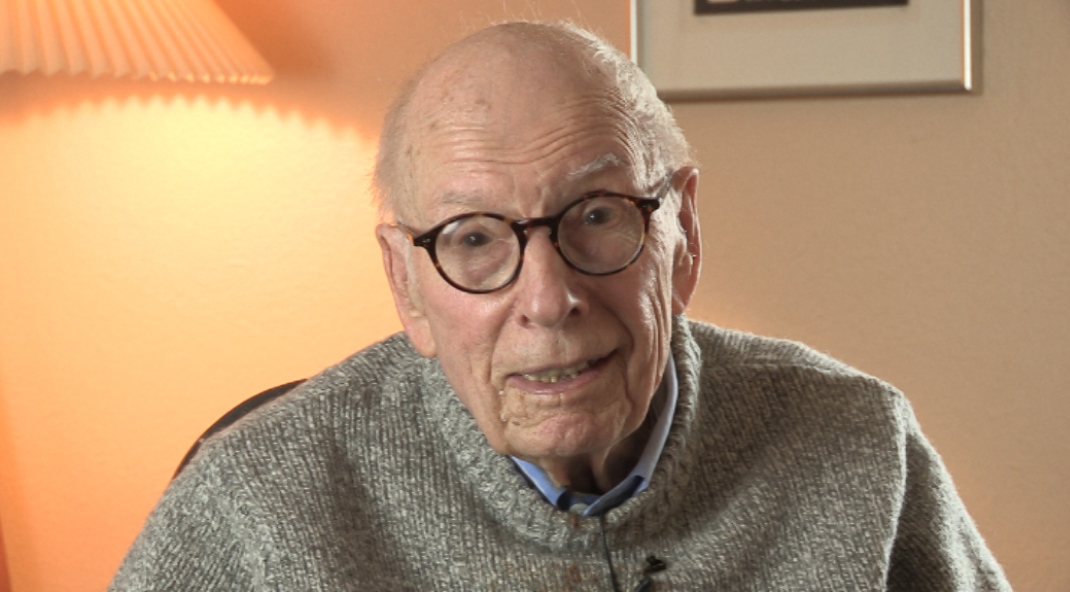NEXT STORY

Conducting experiments while still in the army
RELATED STORIES

NEXT STORY

Conducting experiments while still in the army
RELATED STORIES


|
Views | Duration | |
|---|---|---|---|
| 31. Demonstrating chemotaxis in development | 31 | 02:20 | |
| 32. Wallowing in the developmental aspects of slime mold | 37 | 02:48 | |
| 33. I’m a 19th century biologist | 40 | 01:35 | |
| 34. Learning about high altitude physiology | 28 | 02:55 | |
| 35. Testing the effects of decompression | 24 | 01:56 | |
| 36. Conducting experiments while still in the army | 23 | 02:23 | |
| 37. Giving slime molds a name | 28 | 01:30 | |
| 38. Learning about the facts of life | 32 | 01:57 | |
| 39. Life was fun in Locust Valley | 36 | 04:56 | |
| 40. A typical adolescence | 49 | 00:39 |


A lot of the time - I was there as a buck private before going to officer candidate school - a lot of the time I was just one of the guinea pigs in the high altitude chambers. And that always interests me because there were other people who did what I did, who were seriously affected by brain damage because they'd go at such high altitude with such low oxygen so frequently that they actually did damage their brain. In my case, it may have improved my brain, I don't know.
[Q] Could you explain what you were doing?
Well, it was a great variety of different things. For instance, there was one person who was studying decompression rapidly, so that if you have a bullet hole or a cannon hole go through the fuselage of the plane and you suddenly go from 30,000 [feet] down to ground level instantly, the question is, what kind of effect does it have on the body? And so I was a subject for that because I had big, wide Eustachian tubes and so I wouldn't get a terrific earache when they hit the hole. And things are equally uninteresting. I mean, it was fairly mechanical, although, an interesting group of people there.
John Tyler Bonner (born in 1920) is an emeritus professor in the Department of Ecology and Evolutionary Biology at Princeton University. He is a pioneer in the use of cellular slime molds to understand evolution and development and is one of the world's leading experts on cellular slime molds. He says that his prime interests are in evolution and development and that he uses the cellular slime molds as a tool to seek an understanding of those twin disciplines. He has written several books on developmental biology and evolution, many scientific papers, and has produced a number of works in biology. He has led the way in making Dictyostelium discoideum a model organism central to examining some of the major questions in experimental biology.
Title: Testing the effects of decompression
Listeners: Christopher Sykes
Christopher Sykes is an independent documentary producer who has made a number of films about science and scientists for BBC TV, Channel Four, and PBS.
Tags: high altitude chamber, oxygen level, decompression, brain damage, guinea pig
Duration: 1 minute, 56 seconds
Date story recorded: February 2016
Date story went live: 14 September 2016